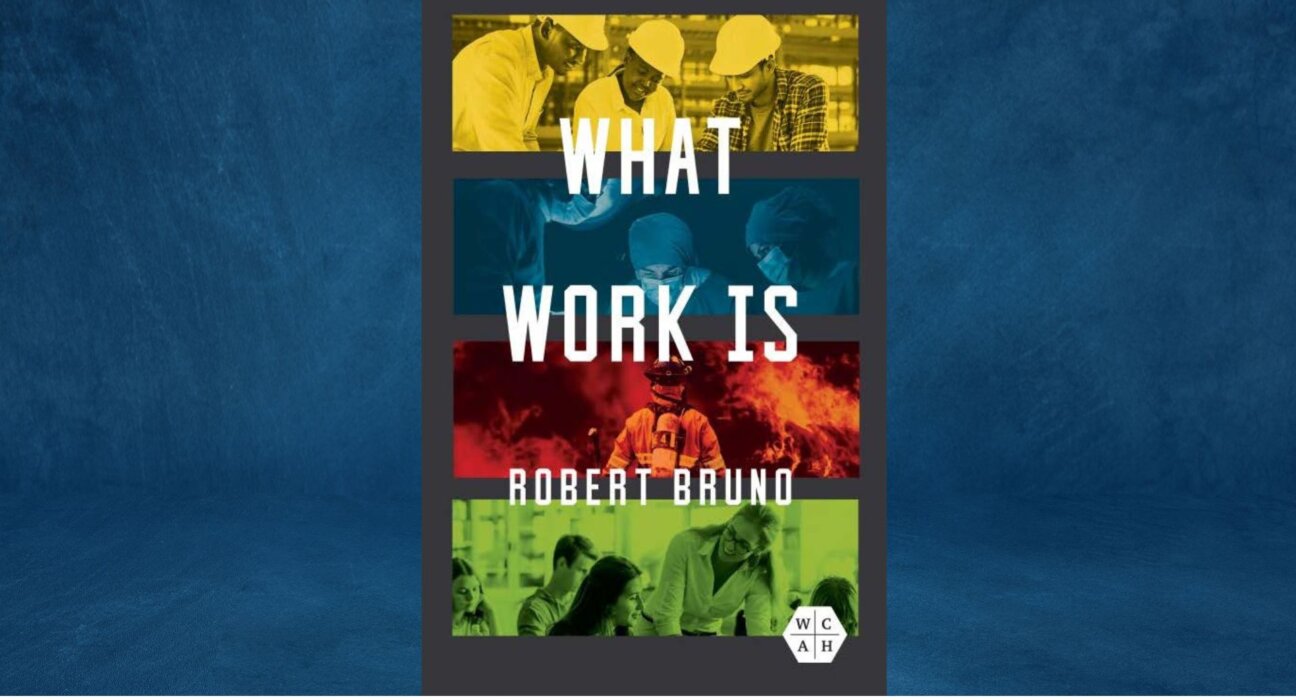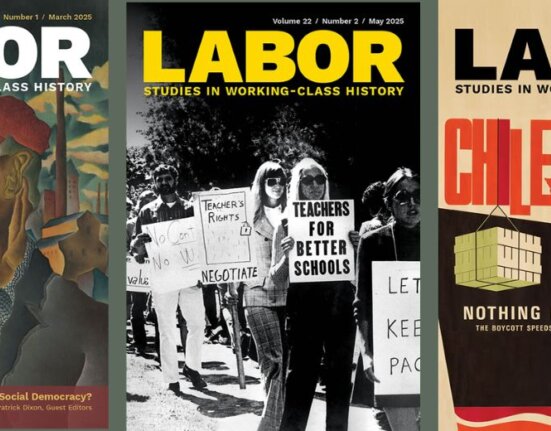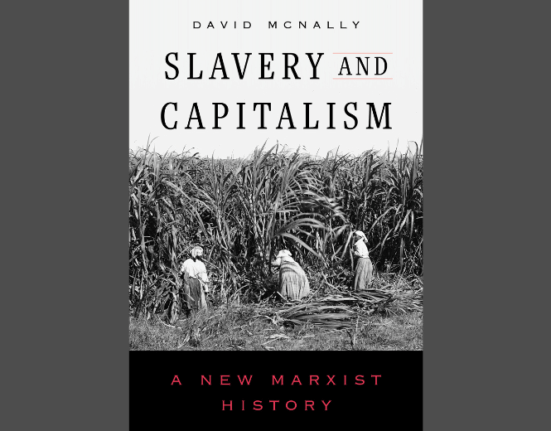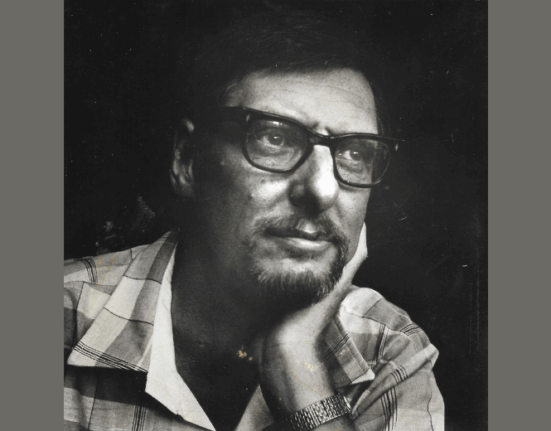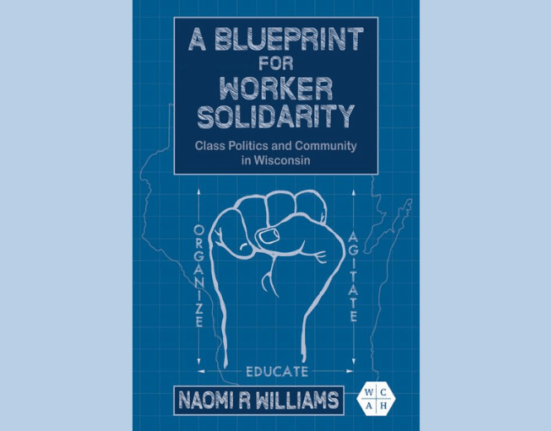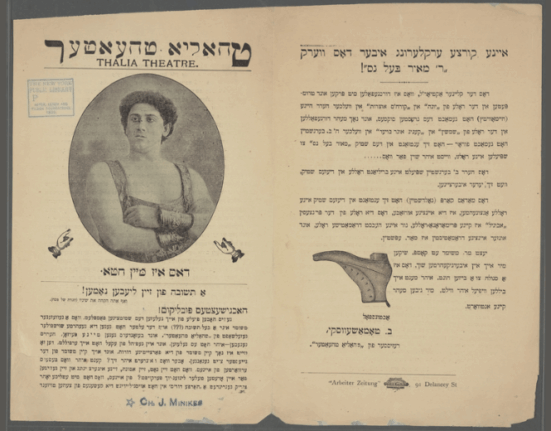In my book, What Work Is, I assert that work has an enormous contradictory impact on the workers and society they build. Anthropologist Herbert Applebaum draws on a biological metaphor to centralize the importance of work to the individual and society. Work, he notes, “is like the spine which structures the way people live, how they make contact with material and social reality, and how they achieve status and self-esteem.”[1] There’s much that makes us human, but work—fully understood—is critical to our individual and social development. Society itself emanates from how we make, distribute, and use the products of our collective labor. Karl Marx stated it as an immutable law that “Labor … is the condition of human existence which is independent of all forms of society.” It is an “eternal and natural necessity which mediates … life itself.”[2]
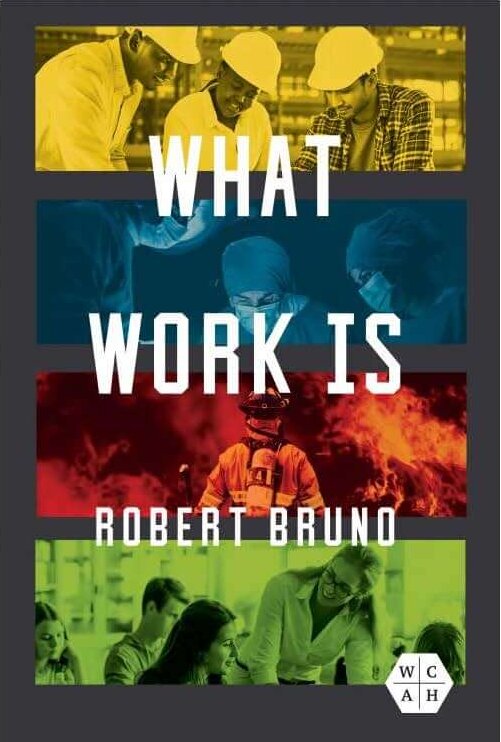 As the United States struggles with an unchartered and unprecedented change in how people will work and think about work, my book recommends a “future of work” that listens to what workers say, “work is.” The thesis of the book is that as we formulate new work structures, we should draw from what workers have appropriated from their work experiences. My intention is that we first learn from what workers can tell us about their present work to know how to design a future of what work should be.
As the United States struggles with an unchartered and unprecedented change in how people will work and think about work, my book recommends a “future of work” that listens to what workers say, “work is.” The thesis of the book is that as we formulate new work structures, we should draw from what workers have appropriated from their work experiences. My intention is that we first learn from what workers can tell us about their present work to know how to design a future of what work should be.
The voices of workers should be prioritized in developing public policies and workplace practices that endeavor to make work more respectful of human life and harmonious with the natural and social world. What workers tell us about “what work is” should inform how leaders of political, business, labor, educational, media and cultural institutions think about the ubiquitous act of working for a living. The reality of work won’t be changed unless we recognize what a complicated, contradictory, glorious, and poetic experience work is. To change what our society does with work and to workers requires first understanding how workers experience their labor. Listening to voices from the point of production is the beginning of thinking differently about work.
A cornerstone of the American dream mythology is predicated on the faith-based belief that paid work pays off. It is so core to our belief system that we never ask, “What is so good about work, anyway?” Now would be a good time to start asking. Despite our unexamined obsession with work, rapturous views of laboring for a living have not been universally held. Bertrand Russell sardonically expressed the opinion “that immense harm is caused by the belief that work is virtuous.”[3] The question of work’s goodness, however, isn’t posed because the answer is typically treated as a given.
When I say I’m interested in understanding what work is, the “is” lies beyond the conventional concepts used to describe work. My assessment includes the physical, intellectual, and emotional mechanics of labor and all the attendant dynamics, but it goes deeper. I’m looking for the ways that a person’s work manifests itself in the world and is then realized by the worker. The “is” I’m exploring is how workers perceive and understand their labor. Here, work is not an object of thought, but what the individual lives through. In this sense, I’m trying to uncover the phenomenology of work. My intention is to see work from the worker’s point of view and explore why it matters.
In examining this question, let me first define for you the kind of work I’m looking at. The work I’m talking about involves the making, buying, or selling of goods or services, and most importantly, it is paid labor. Household and family labor, volunteering, and community organizing are all essential life activities, and there is a growing opinion among economists and sociologists, which I agree with, that these nonmarket forms of work have real financial value and should be seen as contributing to the country’s economy. However, the questions raised in the book are about paid labor with workers employed in various occupations.
The workers I’m listening to are students I’ve taught in labor education classes at the University of Illinois over the past quarter century. Two of the most popular classes I teach are labor history and labor studies. I’ve taught the subjects chronologically and thematically, and usually over multiple sessions. Students have taken classes on the university campus, at union halls, and in union apprenticeship schools. I have taught them in the morning, afternoon, at night, on weekdays, and on weekends. They are largely union members. My worker-students are neither the most marginalized nor the most elite Americans, but they have a great deal to say about work.
As part of the class, I ask my students to do an exercise where they complete the following sentence, using no more than six words: “Work is _____?” That’s it. The words used don’t even have to add up to a grammatically correct sentence. My favorite ungrammatical essay was “Work is sucks.” But “work sucks” (which I have gotten a few times) or “work is sucky” (never heard this one) both communicate what the worker intends. Once the students have given their answers—grammatically correct or not – we then discuss them as a class. I’ve gotten thousands of responses. Groups as large as two hundred workers and as small as a handful have taken the classes.
The discussions typically go on for one to two hours. Where possible, I write out many of the responses on a white board. They add up to a beautiful and evocative collage of nouns, verbs, adjectives, adverbs, and intimate statements. Loss, pain, exhaustion, joy, strength, purpose, confusion, creation, destruction, dignity, happiness, anger, the first-person I, family, community, uncertainty, choice, money, integrity, life, death, time, and space are a small sample of what fills the board and our collective heads. Work is a lot—maybe too much. Or not enough. It could perhaps be everything. Sorting it all out comes next.
I use this writing and discussion exercise because workers are rarely given a chance to talk about work. I don’t mean talk about their job but talk about work as a lived experience, as a heuristic. Subsequently, I mean work largely defined in all its dimensions by popular media, educational institutions, employers, and elected leaders. I have found that writing a six-word essay is a small but impactful way for working-class men and women to begin thinking about and articulating what elements are essential to understanding their class relations. It is a step toward enabling workers to define themselves in terms relevant to their essential life activity. To know themselves as central to civil society and not as costs of production; objects of recruitment, observation, evaluation, and discipline; or according to productivity statistics. The essays are self-reflections designed to strengthen the ability of workers to be intentional and conscious actors in their working-class lives.
To faithfully convey what thousands of carpenters, laborers, electricians, steelworkers, autoworkers, journalists, government employees, operating engineers, teachers, nurses, retail and food workers, service workers, janitors, machinists, plumbers, pipe fitters, truck drivers, cabbies, bus drivers, painters, postal employees, firefighters, and workers from other occupations have said about work, I categorized their responses into the following five dominating themes: time, space, impact, purpose, and subject. Each concept then became the focus of a separate chapter.
My worker-student six-word essays (eight if you count the prompt “Work is”) are also informed and inspired by two other sources. National Public Radio invited people to write six-word essays on race, called the “Race Card Project.” Race in America is a powerful signifier of identity, and individuals experience it in ways that have profound effects on their sense of self.[4] After reading and listening to many of the essays on race, I realized that work could also be the catalyst for short, thoughtful, and emotional expressions.
The other inspiration for my class assignment was taken from an artistic form. The “What Work Is” exercise happens to be the title of an award-winning book of poetry published in 1992, What Work Is by former United States poet laureate Phillip Levine. Levine grew up in Detroit and worked in the city’s auto factories. In working in and later writing about what he called “stupid jobs,” he became “the laureate, if you like, of the industrial heartland.”[5] Work is “stupid jobs.” Powerfully said in only four words.
Included with this post are images of some of the actual essays. Nothing fancy. Some workers scribbled; others were neatly scribed. I also include in the blog a special exception to what workers turned into me. An electrician added an image to the essay. I then got the idea to ask students to accompany their narrative with a drawing. Stick figures were prominent. I like the one on display here. Incredible what can be communicated in a few words and maybe a picture. It must be that workers know a truth about what work is.

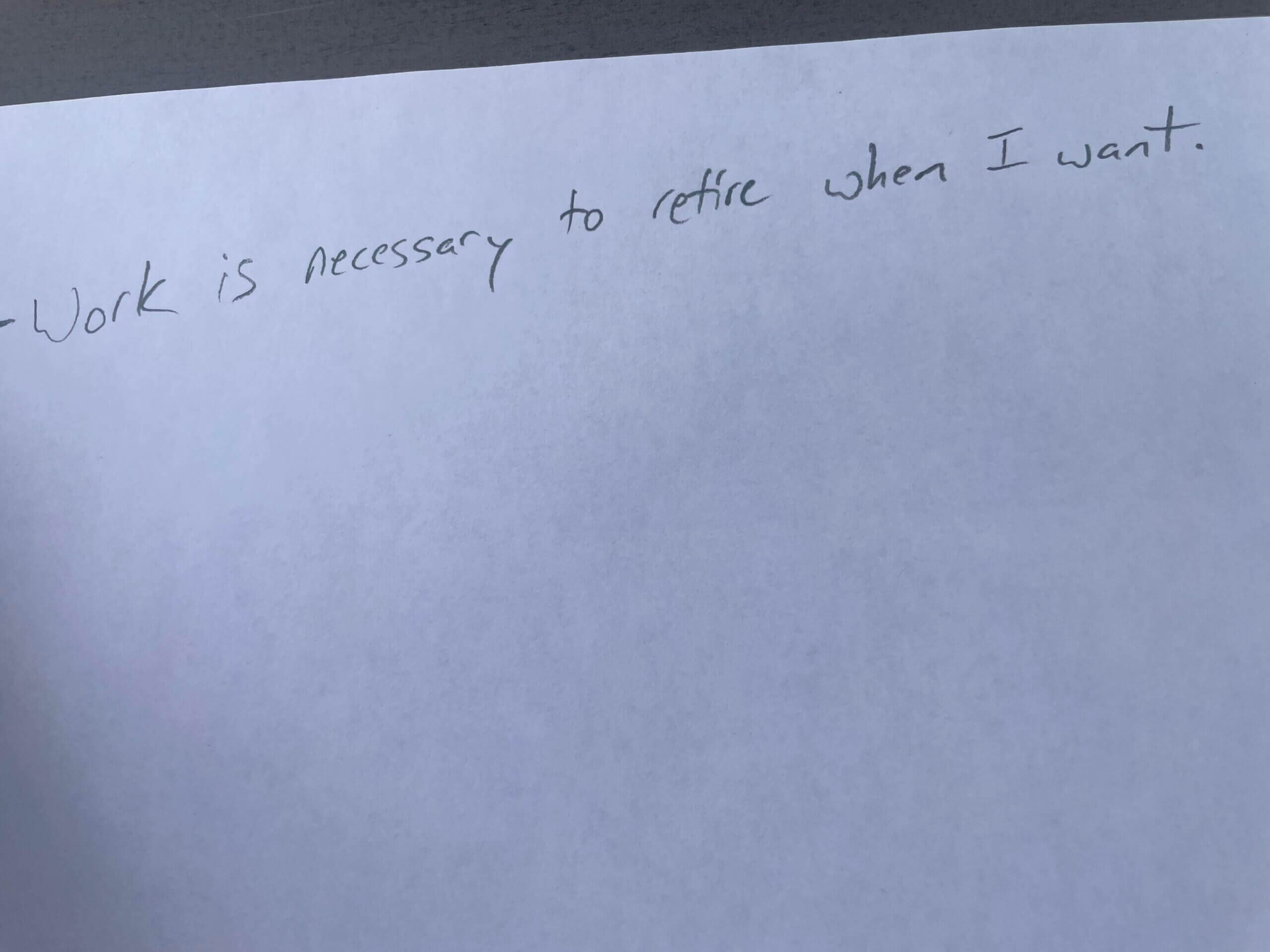
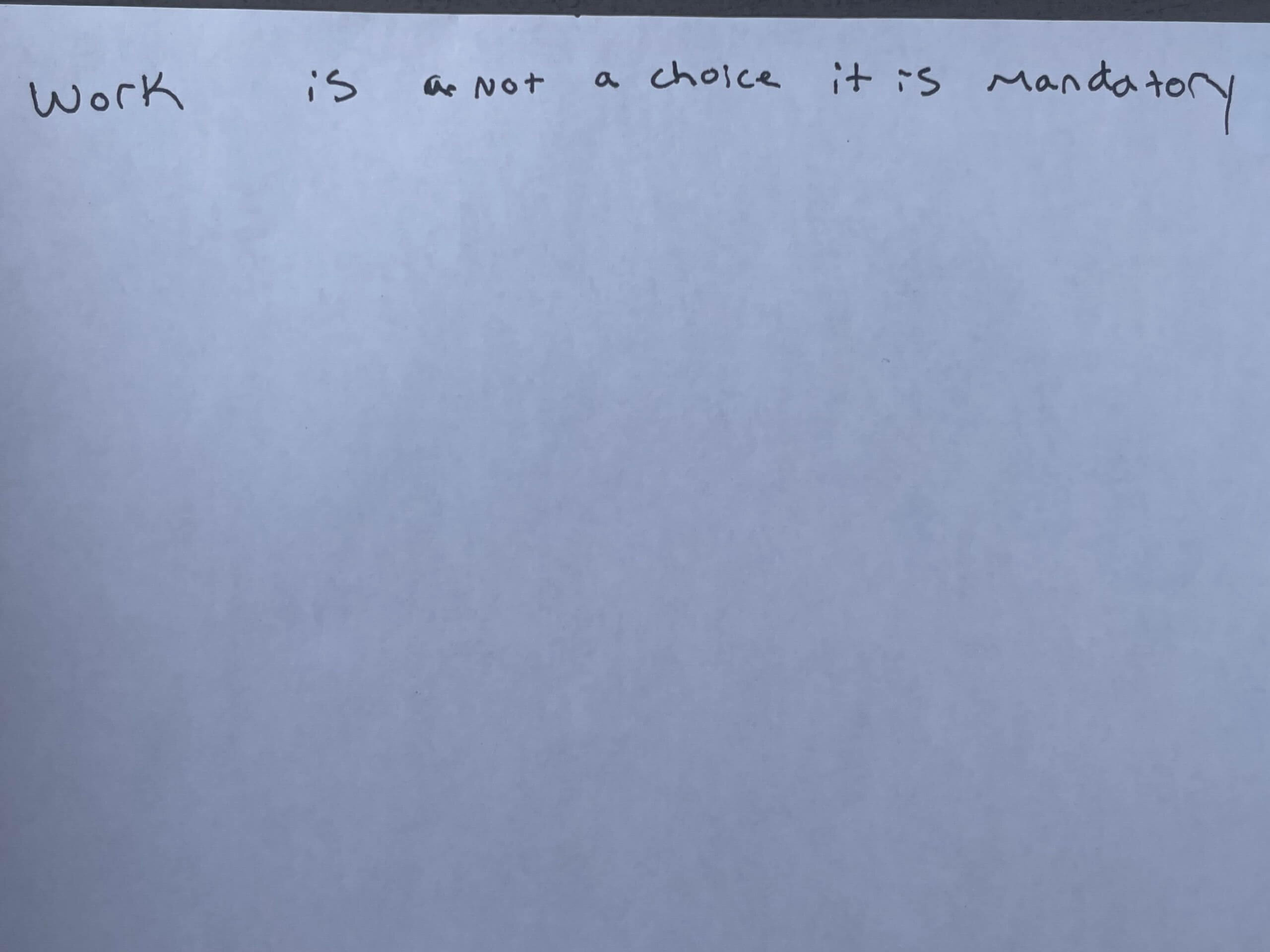
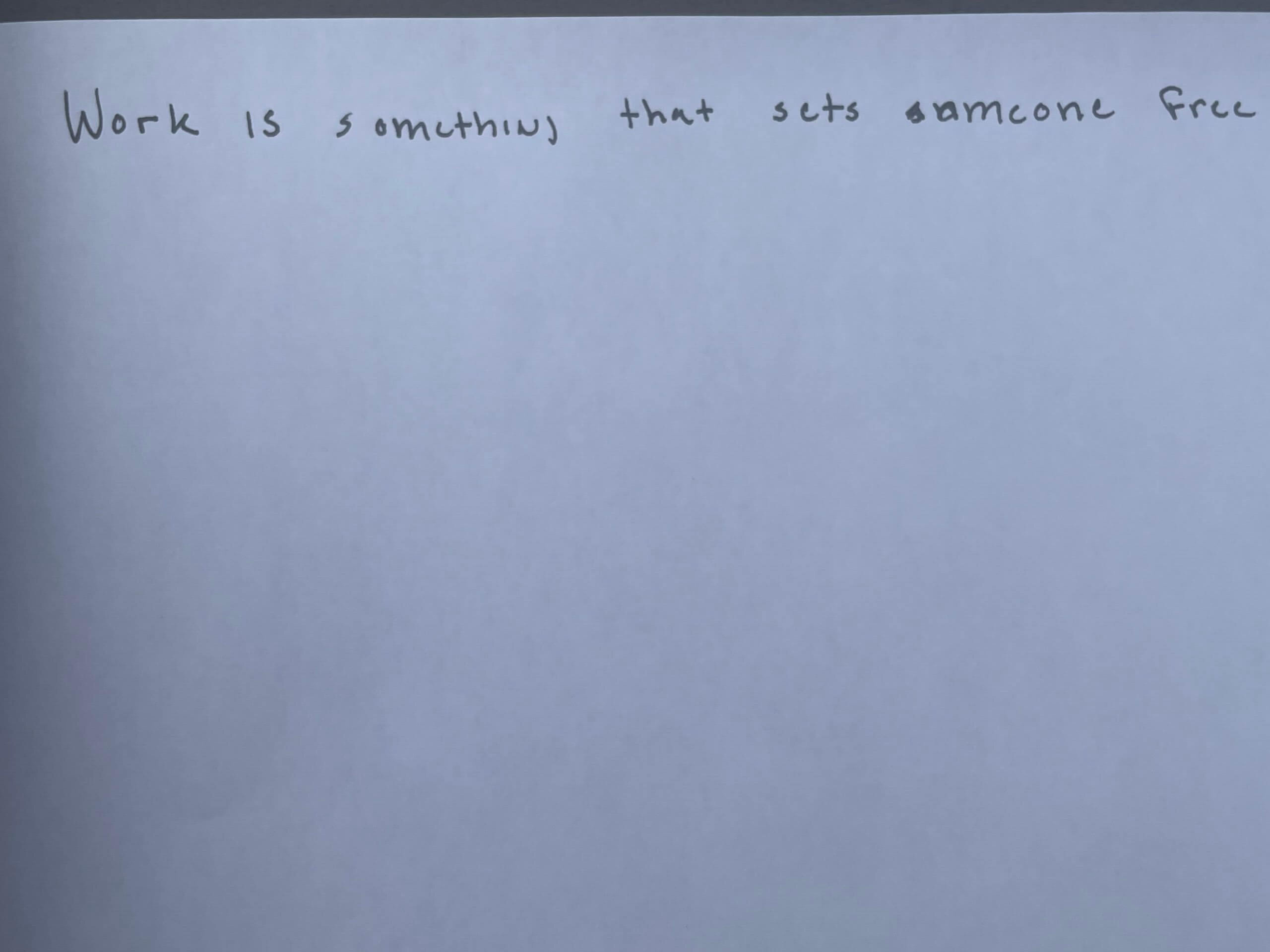
[1] Herbert Applebaum, The Concept of Work: Ancient, Medieval, Modern (Albany: State University of New York Press, 1992), ix.
[2] Karl Marx quoted from Capital, Volume 1 in David Harvey’s A Companion to Marx’s Capital: The Complete Edition, London: Verso Press, 2018, p. 372.
[3] Bertrand Russell, “In Praise of Idleness,” Harper’s Magazine, October 1932 at https://harpers.org/archive/1932/10/in-praise-of-idleness/, accessed 4/2/2023.
[4] “The Race Card-Six Word Essay,” National Public Radio, accessed January 8, 2021, https://theracecardproject.com.
[5] Charles McGrath, “Voice of the Workingman to Be Poet Laureate,” New York Times, August 9, 2011, https://www.nytimes.com/2011/08/10/books/philip-levine-is-to-be-us-poet-laureate.html?_r=1&hp, Retrieved January 8, 2021.
Author
-
Robert Bruno is Director of the Labor Studies Program and a Professor of Labor and Employment at the University of Illinois. He is the author of Steelworker Alley: How Class Works In Youngstown (1999), Reforming the Chicago Teamsters: The Story of Local 705 (2003), Justified by Work: The Meaning of Faith in Chicago’s Working-Class Churches (2008)

